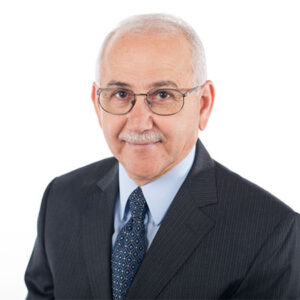IEEE PES Peter W. Sauer Outstanding Power Engineering Educator Award
Home / About PES / IEEE PES Awards & Scholarships / IEEE PES Peter W. Sauer Outstanding Power Engineering Educator Award
About the Award
IEEE PES Peter W. Sauer Outstanding Power Engineering Educator Award is presented to outstanding electric power engineering educators who have excelled in teaching. Up to two recipients will be selected (a) Undergraduate Power Engineering Educator and (b) Graduate Power Engineering Educator.
Co-Chairs:
Antonio Gomez-Exposito
Tom Overbye
Committee Members:
Joe H. Chow
Maria Ilic
Shmuel Oren
Sakis Meliopoulos
Mariesa Crow

2023 Award Recipient
Athanasios P. Meliopoulos for contributions to power system education in protection, control and operation.
Award Details
Purpose:
Eligibility:
Basis for Judging:
- Development and implementation of teaching/learning tools that are or can be made available to students and instructors worldwide and have gained documented acceptance by students and professors;
- Impact (i.e. Publications based on supervised Undergraduate final works; additional recognitions; service as IEEE Student Branch Counselor/Advisor)
- Documented excellence in teaching;
- Involvement with and direction of undergraduate & graduate students to prepare them for successful engineering careers;
- Curriculum development with inclusion of current research and knowledge that reflects the state of the art in courses, and
- Authorship of educational material.
- All scores will be anonymous, tallied and distributed to the award committee for review & discussion.
Prize:
IMPORTANT NOTES: Nomination forms must be written in English. One per year. If no suitable candidate is proposed in a given year, the award will not be presented for that year.
PES, being one of IEEE’s Organizational Units, follows IEEE Policy 4.4H:
- Eligibility and Process Limitations. Individuals serving on any board or committee involved at any stage of the recipient selection or approval process for an award shall be ineligible to receive, or act as a nominator or reference for that award. This conflict of interest limitation shall apply to all awards given by the IEEE or any of its organizational units
Previous Award Recipients
2022 Award Recipient – Joe Hong Chow
2021 Award Recipient – Shmuel S. Oren
2020 Award Recipient – Marija Ilic
2019 Award Recipient – Antonio Gomez-Exposito
2018 Award Recipient – Antonio J. Conejo
2017 Award Recipient – Claudio Adrian Canizares
2016 Award Recipient – Mariesa L. Crow
Past Recipients:
1989 – Hermann W. Dommel
1990 – Herbert H. Woodson
1991 – Arun G. Phadke
1992 – Roy Billinton
1993 – Abdel-Aziz A. Fouad
1994 – Anjan Bose
1995 – Gerald Thomas Heydt
1996 – S. S. (Mani) Venkata
1997 – Peter W. Sauer
1998 – Chanan Singh
1999 – Mohamed E. El-Hawary
2000 – Vijay Vittal
2001 – Charles A. Gross
2002 – Bruce F. Wollenberg
2003 – Leo Grigsby
2004 – Chen-Ching Liu
2005 – Robert J. Thomas
2006 – James S. Thorp
2007 – Göran Andersson
2008 – Ned Mohan
2009 – Lalit Goel
2010 – Richard G. Farmer
2011 – Thomas J. Overbye
2012 – Mohammed Shahidehpour
2013 – Saifur Rahman
2014 – Ali Abur
2015 – Ross Baldick

